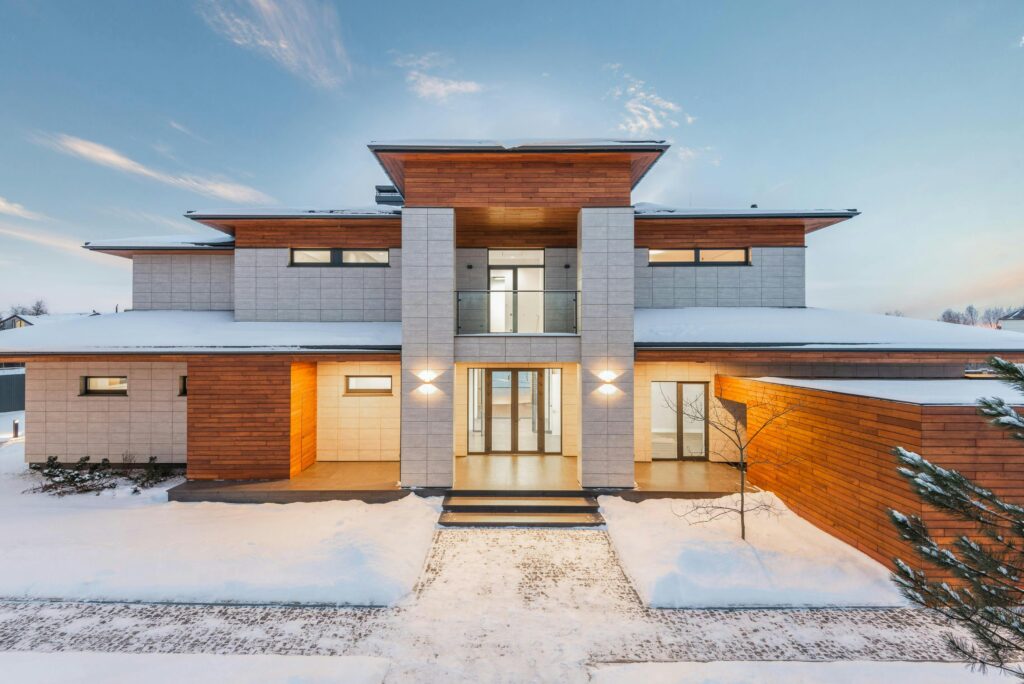
Investing in luxury property sounds like an ideal investment choice, but how does it compare to investing in affordable housing? Is luxury property a waste of money, or is investing in affordable property a false economy? Join me, Liam J Ryan, as I look into luxury vs affordable housing as an investment opportunity, and the pros and cons of both choices.
Table of Contents
ToggleLuxury properties boast a range of high-end features such as a prime location, stunning views of the surrounding area, unique design choices, and luxurious facilities like built-in swimming pools, wine cellars, car lifts, chef’s kitchens and more. Luxury property can be located within a city for convenience and access to fine dining and shopping, or in more rural areas, allowing the owners or tenants to enjoy the countryside views and some peace and quiet. Luxury housing is often built by specialist development companies or by private homeowners.
The definition of affordable housing can vary, but usually, it refers to homes that fulfil a need for housing that is not currently being addressed. The government often provides affordable housing in the form of social rent homes managed by registered providers like housing associations, or via schemes such as shared ownership or grants for first-time buyers. Affordable housing is planned by local authorities and built by housing associations and private developers.
While there are pros and cons to both affordable housing and luxury properties, some investors choose to invest in both to diversify their portfolio to make it more resilient against market fluctuations and changes in the local economy.
There is a high market demand for both luxury and affordable housing, although they have different demographics. High net-worth individuals, international buyers and corporate executives seek luxury housing whereas affordable housing sees strong demand from the wider population. Both types of property are in short supply, but for different reasons – luxury property due to scarcity of prime locations, whereas affordable housing supply is constrained by zoning laws, planning permission and lack of public investment.
International economic conditions, currency exchange rates, and global financial markets can significantly impact the luxury housing market, especially in cities like London that attract foreign investors. Conversely, affordable housing tends to be more resilient during economic downturns as the demand remains relatively stable. People still need somewhere to live, and there may be increased demand from those downsizing or unable to afford more expensive homes.
Luxury property investments can be affected by government policies like higher property taxes, stamp duty, and restrictions on foreign buyers. Occasionally, there can be incentives for restoring or maintaining historic properties, although these are rare. As for affordable housing, government incentives can improve the viability of investing in affordable housing such as subsidies, tax breaks, and grants.
The market for luxury accommodation is robust and reports show that it is likely to remain so with an annual return of 8.5% to 9.2% between 2024 and 2028. Over the next 5 years, London luxury properties are expected to increase in price by up to 13.9%. As for affordable housing, some have predicted a drop in house prices although this is likely to be modest and temporary, and overall prices will continue to rise. A reduction in the interest rate for mortgages and the creation of more government-funded affordable housing and help-to-buy schemes could result in more homebuyers, potentially reducing rental yields, although some predict rental prices will rise by 3 – 4% between now and 2026.
Whether you choose to invest in luxury property, affordable housing or a combination of both, the right choice depends on understanding all potential pros and cons, key factors that influence the ROI of each, and how that fits with your own financial situation and investment goals. I always recommend doing thorough research into the type of property you want to invest in, the location, current trends, and more before making a decision.
Are you interested in finding out more about property investment in the UK? Join me, Liam J Ryan, and other property investment gurus at one of Assets For Life’s FREE property investment events – click here to find out more or sign up.
You May Also Be Interested In...

A Guide to Selling Your Buy-To-Let Property
Thinking of selling your buy-to-let? Learn how to time the market, manage tax and maximise

Planning Permission Loopholes You Should Know About
Discover UK planning permission loopholes, permitted development rights and when you can extend, convert or
Featured Property Investment Events & Courses
The Property Deal Packaging Summit
The Property Millionaire Bootcamp
The Serviced Accommodation Bootcamp
Assets For Life LTD is a company incorporated in England and Wales with registered number 09935286 and registered offices at Assets for Life Ltd, Suite 105, Waterhouse Business Centre, 2 Cromar Way, Chelmsford, Essex, England, CM1 2QE, United Kingdom.
Assets For Life LTD is registered with the Information Commissioner’s Office, with registration number ZA280607
COPYRIGHT © 2024 ASSETS FOR LIFE, ALL RIGHTS RESERVED. WEBSITE BY AMPLIFY MARKETING
Want to learn the 11 steps to survive in a volatile market? Click here to get your FREE guide!